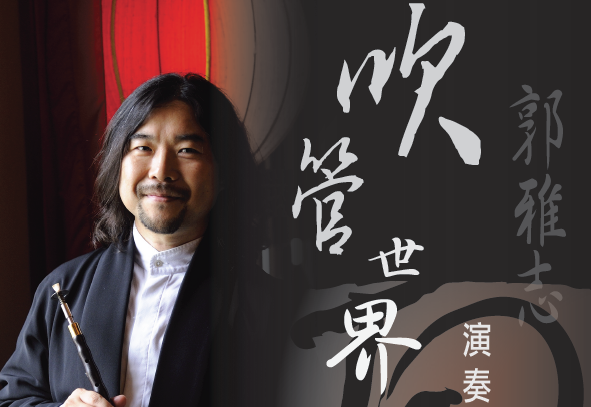Thoughts
張九齡 作詞
江南有丹橘, 經冬猶綠林
豈伊地氣暖, 自有歲寒心
可以薦嘉賓, 奈何阻重深
運命惟所遇, 循環不可循
徒言樹桃李, 此木豈無陰。
唐代詩人張九齡被貶官之後寫了“感遇”哲理詩,作曲家郭亨基譜曲並寫了合唱加大樂隊來表達詩人對於人生種種遭遇之感慨。此詩借用橘樹比喻人,用對比和表揚手法來歌頌橘樹的高尚,純潔,清香之品質。並借用山川阻隔之環境來比喻自己得不到朝廷應有之重視;申訴不平,也表達了自己懷才不遇的憤愾。
全曲音調幽美典雅。節奏,調式,風格。合唱與樂隊相繼展現的諸多變化之豐富尤甚。然而結尾卻極為強烈而短促,給人對詩人一生坎坷遭遇欲言又止。餘情未盡憤然的遺憾。
(程路禹 注解)。
Thoughts, by Jiuling Zhang
In the south, a tangerine tree grows;
its leaves stay green all winter long.
Is it because the weather there is mild,
or does it have a heart familiar with the touch of cold?
It would make a fine gift for an honored guest;
why, then, do you leave it there, so far away?
To each of us, a destiny that holds us firm;
the circle’s closed; there’s no way to break free.
Peaches and plums are the popular choice,
but doesn’t this tree also make fine shade?
Translated by Geoffrey Waters (p. 38 in “300 Tang Poems” by Geoffrey Waters, Michael Farman and David Lunde, Buffalo: White Pine, 2011)
Composer Hang Kei Kwok based the music “Thoughts” on the philosophical poem of the same title written by Tang Dynasty Poet Jiuling Zhang. The poem was written just as Zhang was being barred from office.
Through the metaphorical comparisons between a citrus tree and humanity, composer Hang Kei Kwok juxtaposes humanity against the lofty ideals, fresh, untainted scent of the citrus, and in the same line of thought as the Tang poet Jiuling Zhang, compares his political misfortune with the circumstance of being divided by mountain ranges and gorges.
The music uses classical elements of Chinese music in terms of tempo, tonality and stylistic expressions. The pairing of the choral and the orchestral richly presents the multitude of variations while the climactic finale of the piece is abrupt, leaving listeners with an empty feeling of loss and empathy towards the poet’s multiple tragedies.
by Roy Cheng
Translated by Yinhao Ye





